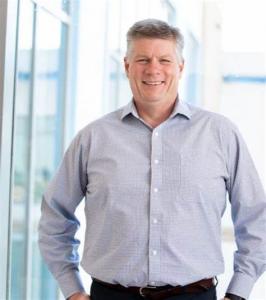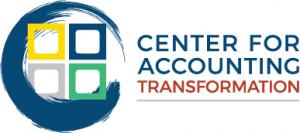Most CPAs Experiencing Severe to Moderate Stress This Tax Season

Center for Accounting Transformation: Visit improvetheworld.net.
With a little bit more than a month to go before the filing deadline, many accountants are dangerously close to burning out.
HONOLULU, HAWAII, UNITED STATES, March 13, 2023 /EINPresswire.com/ -- Randy Crabtree knew something was wrong.
The CPA was in Chicago with his brother going to a breakfast meeting at his office, armed with the coffee and bagels he had just picked up for the team. “My brother opened the other back door. I looked across at him. He said, ‘Are you okay?’ I said, ‘no.’”
Crabtree was having a stroke. Only a few days later, he had another stroke. And while the next few months and physical rehab were blessedly short, the mental rehab took much longer.
“That's what started my downfall,” Crabtree said. “Just like never ending-deadlines and all these things can start someone's mental downfall if we don't start control it.”
“What happened is I started getting a panic attack six months after my stroke,” Crabtree continued. “I had no idea what this was. I felt I was having another stroke. I just lost total control of being able to do anything, think, talk, speak, just bawling my eyes out. And I didn't know what it was. But what it was, what caused that was triggers…My trigger was I felt something in my head. Like, this time, I wasn't going to survive. This time, I was going to become disabled. What's my family going to do? Did I put everything in order so that they can continue without me? I'm going to miss seeing my grandkids grow up. All this stuff starts going through my head, and that just was nonstop.”
After years of research and therapy, Crabtree, the co-founder and partner at Tri-Merit Specialty Tax Professionals, decided to start helping by talking about his experiences. He shared his story during a webinar, “The Value of Personal Resilience: What Business Professionals Need to Know ,” hosted by the Center for Accounting Transformation and moderated by Center founder Donny Shimamoto, CPA, CITP, CGMA.
Joined by fellow CPAs Courtney Deronde and Amber Setter (inactive), as well as noted psychologist Samuel Kim, Crabtree described his battles to shine a light on workplace stress and remove any stigma from mental and emotional struggles.
Deronde, who is the CEO of Forge Financial & Management Consulting, agreed. “I used to believe that working more hours meant I would get more done and that if I couldn't get it done today, I would do it tonight. If I couldn't get it done this week, I would do it this weekend, and that I just had to hustle more and put in more effort and that I would be rewarded with success. And it just required some personal sacrifice. That's the mindset that I had.”
Eventually Deronde came to an epiphany.
“What I now know is that more hours don’t equal more productivity,” she said. “Time is fixed. And when we try to manage our time, we are believing that we can stretch it and flex it…That's not how time works. We all have the same number of minutes in a day, hours in the day days in the week, and we cannot create more time.”
The panelists encouraged attendees to place the highest priority on their physical and mental health during busy season and not to fear asking for help, whether that’s in the form of professional coaching or professional therapy.
Setter, an executive leadership coach with Conscious Public Accountants, a professional coaching firm, said, “As a professional coach, what we're really doing is we are helping people to uncover what matters most to them and how to build a plan that reflects the life that they really want to be leading.”
The panelists agreed that CPAs who are feeling burn out should get help, whether through talking to family and friends, coworkers, mentors, or professional coaches. Of course, the list of confidants could include a professional therapist.
Kim, a licensed psychologist and professor of psychology at the University of Denver, said, “One of the first questions I always get is from people who feel like, ‘I've tried all these different things, I've read all the books, I've watched the TED talks, I've talked to colleagues, I've leaned on friends and family, but there still seems to be something that's not quite working in my life.’ Another group of clients that I've worked with it are those whose stress levels have just exceeded their ability to handle all of that, their ability to cope with all that stress.”
While credentials, competency, and experience should play vital roles in selecting professional help, Kim said it basically boils down to the right match.
“After you meet with the person, do you feel comfortable talking with this person?” Kim said. “Because they can have all the training and many, many years of experience. But if you don't feel comfortable talking about all the things that are going on in your life in an open manner, then it's not going to be a great place for you to get that treatment.”
CPAs, they all agreed, are largely not open to asking for help for one reason: They are used to helping everyone else.
“You ask anybody why they got into tax and accounting, and they always say, ‘Oh, I want to help people.’ That’s where our mindset is,” Crabtree said. “But we lose the fact that, hey, we also have to help ourselves.”
“The Value of Personal Resilience: What Business Professionals Need to Know” is available as a self-study course from the Center for free by using promo code pr-resilience.
View additional courses to help #EnableTransformation.
Amy Welch
IntrapriseTechKnowlogies
+ 14058381307
email us here
Visit us on social media:
Facebook
Twitter
LinkedIn
Legal Disclaimer:
EIN Presswire provides this news content "as is" without warranty of any kind. We do not accept any responsibility or liability for the accuracy, content, images, videos, licenses, completeness, legality, or reliability of the information contained in this article. If you have any complaints or copyright issues related to this article, kindly contact the author above.


